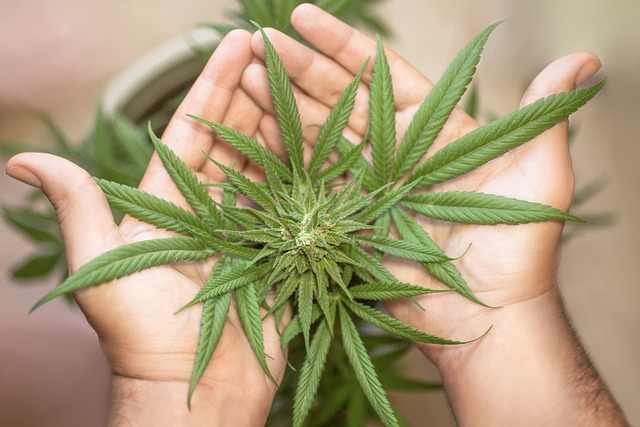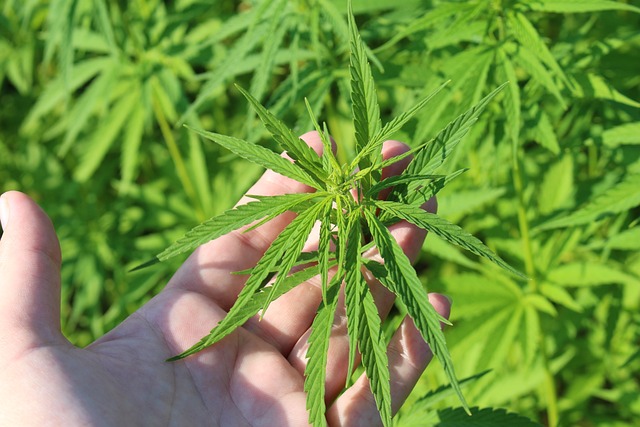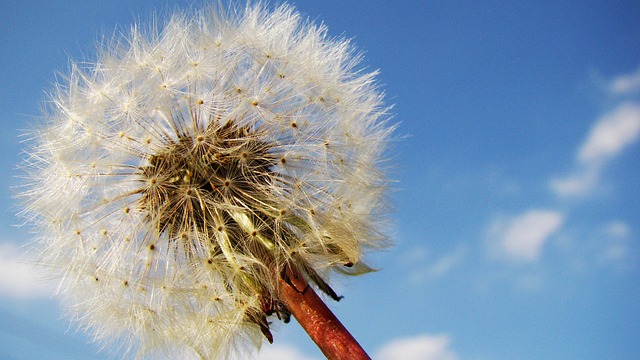∆9-Tetrahydrocannabinolic Acid (THCA), a non-psychoactive cannabinoid found in raw cannabis plants, has garnered significant attention in the UK for its potential therapeutic benefits, including analgesic and anti-inflammatory properties. With the Misuse of Drugs Regulations of 2004, THCA flowers are legally permissible in the UK as long as they contain less than 0.2% THC. The evolving legal status of THCA in the UK is complex, with varying regulations across England, Wales, Scotland, and Northern Ireland, and the legal landscape continues to adapt post-Brexit. Research into THCA's health benefits alongside regulatory compliance is crucial for its responsible use within the medical cannabis sector, as evidenced by the 2018 Legalization of Cannabis for Medical Use Act. Advanced extraction methods, such as supercritical CO2 or ethanol solvent extraction, are employed to maintain THCA's integrity and potency, reflecting a commitment to sustainable, high-quality production practices that adhere to both environmental and quality standards in the UK. Consumers can access these products legally, with an emphasis on organic farming, precise processing techniques, and the preservation of cannabinoids and terpenes for optimal health benefits.
Discover the transformative potential of THCA flower, a non-psychoactive powerhouse within the cannabis plant. This article delves into the multifaceted nature of THCA, exploring its legal status in the UK, historical significance, and the intricate science behind its chemical structure and properties. As we navigate the evolving legal landscape for THCA products in the UK, we’ll also examine cultivation techniques, therapeutic benefits, and consumer safety. From the entourage effect to decarboxylation, from the aromatic terpene profiles to regulatory frameworks, this comprehensive guide offers an in-depth analysis of THCA’s role in cannabinoid profiles and its implications for wellness. Join us as we explore the future of THCA research and regulation, ensuring you have a well-rounded understanding of this emerging cannabinoid.
- THCA Flower: Unveiling the Potential of Tetrahydrocannabinolic Acid
- The Chemical Structure and Properties of THCA Molecules
- THCA Legal Status in UK Countries: A Comprehensive Overview
- Historical Context: THCA's Place in Cannabis History
- Extraction and Production Methods for High-Quality THCA Flower
THCA Flower: Unveiling the Potential of Tetrahydrocannabinolic Acid

Cannabis research continues to uncover the multifaceted effects of its many compounds, with tetrahydrocannabinolic acid (THCA) gaining attention for its potential therapeutic benefits. THCA, the raw form of THC found in cannabis plants, is non-psychoactive but is converted into THC when exposed to heat or combustion. As interest in cannabis derivatives grows, especially within the context of THCA legal status in the UK, consumers and researchers alike are exploring the properties of THCA flower. In the UK, where the legal landscape is evolving, THCA flowers are recognized as legal provided they contain no more than 0.2% THC on a dry weight basis, aligning with the Misuse of Drugs Regulations of 2004. This has opened avenues for scientific investigation and consumer exploration into the potential health benefits of THCA, which some studies suggest may offer anti-inflammatory, pain-relieving, and neuroprotective effects without the psychoactive ‘high’ associated with its decarboxylated counterpart. As such, the THCA flower is becoming a subject of interest for those seeking alternatives to traditional medications for various conditions, within the confines of legal compliance in UK countries.
The Chemical Structure and Properties of THCA Molecules

Delta-9-tetrahydrocannabinolic acid (THCA) is the non-psychoactive precursor to the well-known psychoactive compound delta-9-tetrahydrocannabinol (THC). The chemical structure of THCA features a pentyclic ring system with an acidic carboxyl group (-COOH) at the R position, distinguishing it from its decarboxylated form, THC. This carboxyl group is crucial for the molecule’s interaction with the endocannabinoid system within the human body, making it a subject of interest in various scientific studies. THCA molecules exhibit unique properties, including potential analgesic and anti-inflammatory effects, without the psychoactive impact typically associated with cannabis. The legality of THCA-rich products varies across the UK; while some parts have legalized medical marijuana that contains THC, others allow products that contain CBD and other cannabinoids, including THCA, provided they are derived from hemp and contain less than 0.2% THC. Understanding the chemical properties and potential applications of THCA is of great interest in both scientific research and legal frameworks surrounding cannabis derivatives within the UK. As such, the exploration of THCA’s legal status and its therapeutic potential continues to evolve, reflecting a dynamic landscape that balances health benefits with regulatory considerations.
THCA Legal Status in UK Countries: A Comprehensive Overview

THCA, or Tetrahydrocannabinolic Acid, is a non-psychoactive cannabinoid found in raw or uncured cannabis plants, which degrades into THC upon heating or decarboxylation. As of the latest updates, the legal status of THCA in UK countries is nuanced and subject to strict regulations under the Misuse of Drugs Act 1971. Cannabis-related laws vary across different nations within the UK, with England, Wales, and Scotland each having their own jurisdictions. Generally, cannabis that contains THCA is legal so long as it has a THC content of 0.2% or less; however, the cultivation, distribution, and possession must comply with the Medicines Act 1968 and be authorized for medical research purposes or for use as an ingredient in licensed medications. In Northern Ireland, the legislation aligns with that of the rest of the UK, but with an added complexity due to its unique position within the UK post-Brexit. The legal landscape is further complicated by the Home Office’s guidelines and local law enforcement interpretations, which necessitate a thorough understanding for those navigating the legalities of THCA in these territories. It’s crucial for individuals dealing with THCA in any capacity to stay informed on the evolving legal frameworks across UK countries, as non-compliance can lead to legal consequences.
Historical Context: THCA's Place in Cannabis History

Delta-9-tetrahydrocannabinolic acid, commonly known as THCA, is a naturally occurring compound found in the Cannabis sativa plant and is the precursor to the well-known psychoactive substance, delta-9-THC. While THC has been the focal point of cannabis discussions for decades, THCA has garnered attention due to its potential therapeutic properties and distinct effects. The history of THCA’s use dates back thousands of years, with archaeological evidence suggesting its medicinal applications in traditional practices across various cultures. In modern times, the legal landscape surrounding cannabinoids has evolved significantly, particularly within UK countries where regulations have been more progressive compared to other regions. The Legalisation of Cannabis for Medical Use (LCM) Act 2018 marked a pivotal moment, allowing licensed medical practitioners to prescribe cannabis-based products for therapeutic use, which includes THCA that is legal under specific conditions. As the understanding of cannabinoids expands, THCA’s legal status in UK countries continues to be shaped by ongoing research and legislative updates, reflecting a broader shift towards recognising the potential benefits of this non-psychoactive cannabinoid. This evolution underscores the importance of historical context in shaping current policies and public perception, as well as the potential for THCA to play a significant role in the future of legal cannabis products within these jurisdictions.
Extraction and Production Methods for High-Quality THCA Flower

The extraction and production methods for high-quality THCA flower have seen significant advancements, particularly as regulations evolve and products like THCA flowers become legal in certain regions such as the UK. Producers utilize specialized techniques to preserve the natural integrity of the THCA molecule, which is the raw cannabinoid found in hemp before it is heated to transform into THC. One of the most prominent methods involves a solvent extraction process, where supercritical CO2 or ethanol is used to isolate the THCA from the plant material. This method is preferred for its efficiency and ability to produce high-purity extracts without leaving behind harmful solvents. The precision of temperature and pressure in this process is crucial in maintaining the stability of THCA, ensuring that the end product retains its natural properties.
Furthermore, as the legal landscape continues to evolve, producers are increasingly focusing on sustainable and eco-friendly practices. This includes the use of organic farming methods, reducing environmental impact, and adhering to strict quality controls. Advanced drying and curing techniques are employed to enhance the potency and flavor profiles of the THCA flower. These methods not only optimize the preservation of cannabinoids and terpenes but also align with the growing consumer demand for sustainable and health-conscious products. In the UK, where THCA-rich hemp products are legal, consumers have access to a range of high-quality THCA flowers that are produced with these modern and responsible methods. The attention to detail in every step of the cultivation, harvesting, and processing ensures that users can enjoy the benefits of this natural compound in its most potent form.
The exploration of THCA flower has shed light on its promising potential, both chemically and legally within the UK. This article has delved into the intricate structure and properties of THCA molecules, offering a scientific perspective on this non-psychoactive cannabinoid. The historical context of THCA places it firmly in the annals of cannabis history, with its resurgence in interest reflecting a broader cultural shift towards cannabinoid research. The legal status of THCA in UK countries has been comprehensively reviewed, highlighting the nuanced regulatory landscape that governs its use and production. Advancements in extraction and production methods for high-quality THCA flower have paved the way for further scientific inquiry and potential therapeutic applications. As the understanding of THCA continues to evolve, it remains a compelling subject for researchers and an intriguing option for consumers within the legal boundaries set by UK countries.
